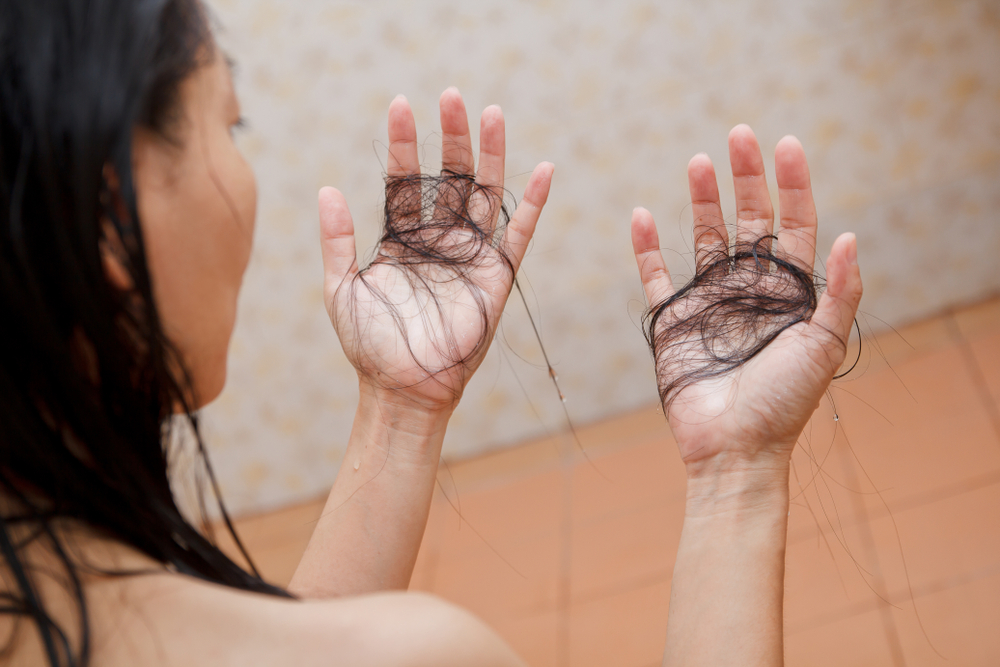In modern society, hair loss has become a health and image issue troubling many people. Whether due to genetic factors, excessive stress, or poor living habits, hair loss can occur subtly, affecting self-confidence and quality of life.

I. Common Types and Causes of Hair Loss
- Hereditary Hair Loss (Androgenetic Alopecia)
Main manifestations: Receding hairline and thinning crown (more common in men); overall thinning and softening of hair (more common in women).
Cause: Genetic factors make hair follicles sensitive to DHT (dihydrotestosterone), leading to gradual shrinkage.
- Telogen Effluvium
Triggers: Postpartum recovery, surgery, rapid weight loss, high-stress lifestyles, etc.
- Alopecia Areata
Symptoms: Sudden appearance of round bald patches on the scalp, possibly related to autoimmune abnormalities or mental stress. - Other Causes
Malnutrition: Deficiency in protein, iron, zinc, vitamin D, etc.
Improper hair care: Frequent perming/dyeing, excessive pulling (e.g., tight ponytails).
Illness or medication: Thyroid diseases, chemotherapy drugs, etc.
II. How to Determine if Hair Loss Is Severe?
- Daily hair loss volume: Normal shedding is about 50-100 strands; continuous less exceeding 150 strands requires attention.
- Hair texture changes: Hair becomes thin, soft, or easily breakable.
- Scalp condition: Increased oiliness, itching, or redness on the scalp.
Self-test methods:
- Hair pull test: Gently pull a strand of hair (about 50 strands); more than 6 strands falling out may indicate abnormality.
- Hairline observation: Compare with old photos to check for obvious recession.
III. Scientific Hair Loss Prevention: From Lifestyle to Professional Care
- Daily Care Recommendations
Gentle cleansing: Choose silicone-free, pH-neutral shampoo; avoid high-temperature blow-drying.
Reduce perming and dyeing: Chemical agents damage cuticles and exacerbate hair loss.
Proper combing: Use a wide-tooth comb; avoid rough brushing on wet hair. - Dietary Adjustments
Supplement protein: Eggs, fish, beans (hair is mainly composed of keratin).
Key nutrients:
- Iron: Red meat, spinach.
- Zinc: Oysters, nuts (promote hair follicle health).
- B vitamins: Whole grains, green leafy vegetables (maintain scalp metabolism).
- Stress Management
Long-term stress can trigger telogen effluvium; relieve it through exercise, meditation, etc.
IV. Medical Intervention: When to Seek Medical Help?
- Topical Medications
Minoxidil (5% concentration): FDA-approved hair growth medication; results take 3-6 months of continuous use.
Ketoconazole lotion: Relieves hair loss caused by seborrheic dermatitis. - Oral Medications
Finasteride (for men): Inhibits DHT production; must be used under doctor’s guidance.
Spironolactone (for women): Has anti-androgen effects, targeting hormone-imbalance-related very little hair. - Advanced Treatments
Low-Level Laser Therapy (LLLT): Laser caps or combs stimulate hair follicle activity.
Platelet-Rich Plasma (PRP): Growth factors extracted from one’s own blood are injected into the scalp.
Hair transplant surgery: Suitable for permanent with closed follicles; requires evaluation of donor area resources.
V. Myth-Busting: Common Misconceptions About Hair Loss
- “Washing daily causes hair loss”: It is a follicle issue, unrelated to washing frequency.
- “Rubbing ginger on the scalp promotes hair growth”: It may irritate the scalp and worsen inflammation.
- “Shaving the head makes hair thicker”: Hair thickness is determined by the number of follicles; shaving has no effect.
Conclusion
Hair loss is not irreversible. The key lies in early detection and scientific intervention. By adjusting lifestyles, using medication appropriately, and even relying on modern medical techniques, most hese problems can be improved. If it has severely affected your life, it is advisable to consult a dermatologist promptly to develop a personalized plan. Remember: healthy hair stems from consistent care!
Related articles:

